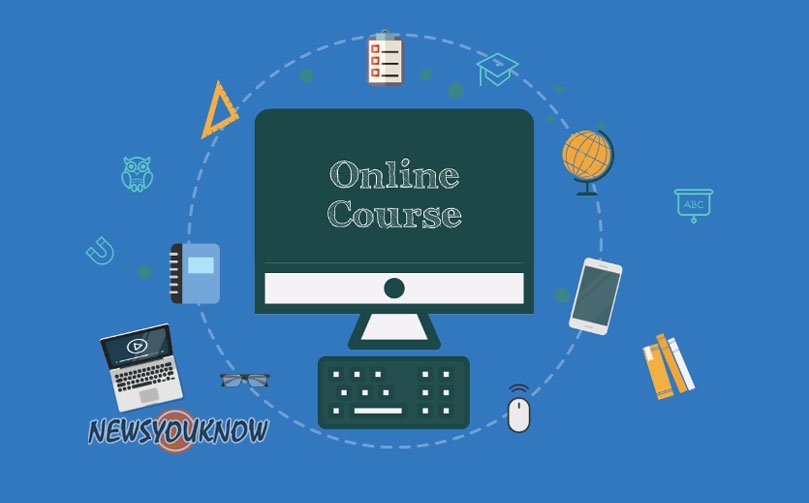Online learning has become extremely popular, with over 25 million registered users taking online courses. But an important question remains – are these online courses and certificates recognized by employers and colleges? Do they carry any real value when advancing your career?
This article will dive deep into whether online certifications are worth your time and money, looking at key aspects like:
Are online courses accredited and recognized by employers?
A common concern is whether the certificate you receive after completing an online course is officially accredited and recognized by potential employers. The short answer is it depends on the course provider.
Popular platforms like Coursera, edX, Udemy, and LinkedIn Learning partner with top universities and companies to offer specialized certifications and credentials in subjects ranging from data science to project management. These are high-quality courses taught by industry experts that provide accredited certificates.
For example, an accounting certificate from Coursera offered in collaboration with a university is more likely to be recognized by hiring managers than a random online accounting course. Always research the institution and accreditation before enrolling.
Do online certifications boost your resume and career opportunities?
Absolutely – the right online certificate can be extremely valuable in boosting your resume and opening up new career opportunities. They demonstrate knowledge and skills in specialized, in-demand fields like digital marketing, data analysis, and web development.
85% of HR managers state that candidates with online certificates and credentials catch their attention compared to those without. They show motivation to gain new skills.
Online courses also allow working professionals to upskill in their spare time. So you can transition your career to the next level without going back to school full-time.
Can I transfer online course credits to colleges and degree programs?
Many top online program providers have partnerships with accredited colleges and universities. This allows learners to transfer certificate credits toward full degree programs and save time and money.
For example, IBM offers a Data Science certificate on Coursera that can translate into 9 college credits at select schools. Learners then only need to complete 21 more credits for an Associate’s Degree.
Always verify transfer credit eligibility with your target school before enrolling in an online course. Many colleges provide generous transfer credits, but some are more restrictive.
How much do accredited online certificates and courses cost?
Pricing varies greatly, but quality online programs charge anywhere from $100 to $500+ per course. Specialized certifications often include 4-6 focused courses, so total program fees commonly range between $500 – $3000+.
Some providers like edX and Coursera offer financial assistance to make courses more affordable and accessible. So cost should not be the deciding factor, focus instead on quality and fit.
How can I recognize credible online certificates and courses?
With the rise in online education, many sites now provide certifications with varying levels of quality and credibility. Here are 5 indicators to recognize legitimate, worthwhile online certificates:
- Accreditation – Check that the organization or university issuing the certificate is officially accredited.
- University Partnerships – Leading online providers partner with top colleges to develop curriculum.
- Recognized Institution – Certificates from globally recognized platforms like Coursera hold more weight.
- Industry Experts – Courses should be taught by seasoned professionals in their field.
- Skills Focus – Certificates concentrating on specialized, technical skills are more valuable.
As long as you carefully vet courses using the above criteria, online learning is worthwhile for career and personal growth.
Which online course providers are best for accredited certificates?
While options abound, these 5 platforms stand out for providing accredited, career-boosting online credentials across diverse fields:
- Coursera – 3,000+ courses in business, tech, and data science alongside career-focused online degrees with leading universities.
- edX – 2,500+ courses from top schools like Harvard and MIT. Many qualifications count for credit.
- Udemy – Leading global marketplace for online learning with 130,000+ video courses taught by experts.
- LinkedIn Learning – 14,000+ on-demand courses specializing in creative, technology, and business skills, all taught by industry leaders.
- Udacity – Specializes in in-demand tech fields like AI, cloud computing, autonomous systems, data science, and more. Nanodegree programs.
No matter which accredited provider you choose, online credentials can significantly enrich your skillset and resume. Combining them with work experience is a powerful formula for career advancement.
Are there any downsides to online learning and certificates?
While online education unlocks new opportunities, it does come with a few potential downsides to consider:
- No face-to-face interaction – Lack of in-person engagement and discussions could limit learning for some students. Make sure platforms have online community options.
- No consistent schedule – Self-pacing is flexible but requires discipline without set class times. Avoid falling behind on coursework.
- Less prestigious – On average, degrees and credits earned fully online are viewed as less prestigious by some hiring managers than traditional colleges.
- Scam risks – With the rise in eLearning, illegitimate course providers have emerged. Carefully validate credentials before enrolling.
- Motivation challenges – It’s easier to procrastinate with online learning. Set goals and deadlines to hold yourself accountable.
If you take precautions around these risks, online education presents tremendous upside for self-improvement with few downsides.
Which online certificate is best for my career goals?
With endless course options, it can get overwhelming to determine which credentials suit your specific career ambitions best.
Narrow your focus by aligning certificates with in-demand roles you wish to pursue long-term. Research job descriptions and skills required by target companies so you gain relevant competencies.
For example, if interested in digital marketing, certifications in SEO, social media advertising, Google Analytics, and email marketing will be highly valued.
Beyond matching credentials to roles, pursue subjects you find genuinely interesting to remain engaged in online programs. Combining interest and career alignment leads to the best outcomes.
Final Takeaways: Are Online Certificates Worth It?
The credentials and skills you develop with accredited online courses provide tremendous value for career enhancement and personal enrichment if you choose wisely.
Legitimate certifications and specialized programs from leading course providers are recognized by employers and postsecondary institutions. They demonstrate motivation to upskill outside traditional classrooms.
Just be sure to carefully validate credentials based on the criteria covered in this article before committing your time and money. Prioritize skills relevant to your career path and pursuits that genuinely interest you. If online learning checks those boxes, it will undoubtedly enrich your life and employability.













No Comment! Be the first one.